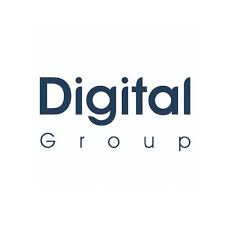- The company offers services across IPTV, satellite connectivity, fibre, and radio broadcasting.
- It operates in a highly competitive and evolving telecom market recovering from years of disruption.
Digital Group for Telecom and Informatics expands national coverage
Founded to meet growing demand for connectivity and data services across Libya, Digital Group for Telecom and Informatics Co is becoming a major player in the country’s digital transformation. With services spanning IPTV, fibre optics, satellite links, microwave transmission, and media broadcast solutions, the company has built a diversified portfolio addressing both consumer and business needs.
Based in Tripoli, Digital Group operates a 24/7 Network Operation Centre (NOC) and has rolled out infrastructure that serves internet service providers, television channels, and enterprise clients across Libya. The company is also active in telecommunications infrastructure integration, helping public and private sectors implement digital systems tailored to local constraints.
Its work extends into satellite uplink and downlink services, VSAT connectivity, and broadcast content delivery, helping Libyan networks rebuild amid intermittent power and bandwidth challenges. As part of the broader Libyan ICT ecosystem, Digital Group plays a stabilising role in a sector still recovering from conflict-related disruptions.
Also read: Stonepeak commits $1.5B to data hubs
Also read: Open Access Data Centres: Pan‑Africa carrier‑neutral data hubs
Digital Group for Telecom and Informatics reflects a changing Libyan telecom market
Libya’s digital infrastructure sector has faced persistent challenges — from limited international connectivity to infrastructure sabotage and erratic regulation. Yet demand for reliable internet and data services has surged, creating a crucial opening for firms like Digital Group.
While competitors such as Libyana, Almadar, and LTT dominate mobile and consumer markets, Digital Group’s business-to-business and enterprise focus gives it an edge in high-spec services. Still, it must navigate an environment of regulatory uncertainty, and high costs associated with maintaining cross-country network uptime.
As Libya eyes post-conflict recovery, companies that build resilient local infrastructure will likely shape the future of digital access. With its investments in both content distribution and network architecture, Digital Group appears well-positioned to remain a key provider in a market still in flux.

